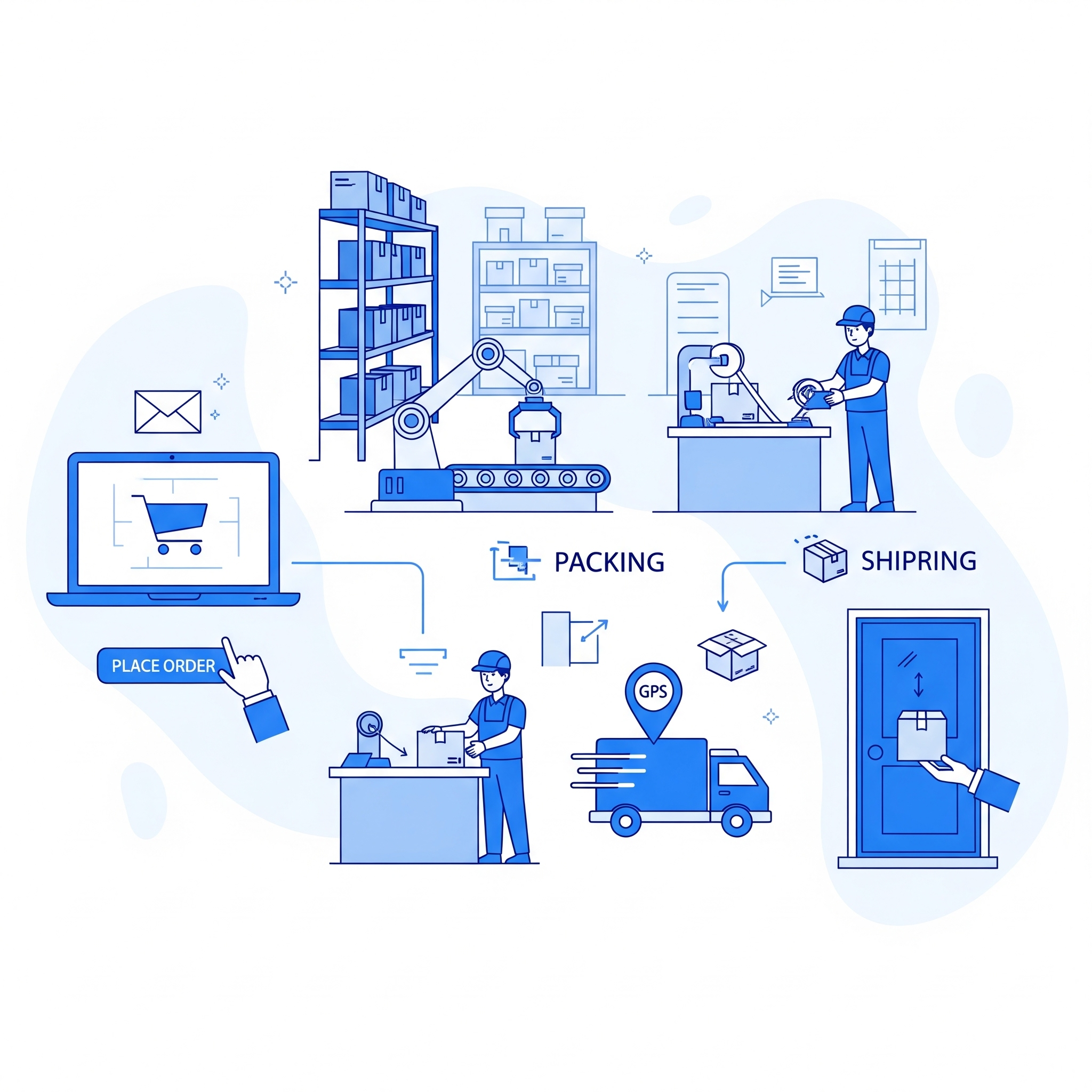Running an Online Store? Here's the A to Z of Managing Orders Smoothly

In the fast paced world of online shopping efficient order management can make or break an e-commerce business. As brands scale up, handling everything from inventory to shipping gets complex. That’s where order management software comes in. But what exactly is it? How does it help your business? And how do you choose the right one?
This detailed FAQ blog answers all your top questions about order management software for e-commerce.
1: What is Order Management Software for E-Commerce?
Order management software is a digital system that helps e-commerce businesses manage orders from purchase to delivery. It tracks inventory order status, customer information, shipping details and even returns all from a single dashboard.
It ensures nothing slips through the cracks especially when you're handling high volumes of online sales.
Q2: How Does Order Management Software Work?
When a customer places an order on your e-commerce site the software:
-
Logs the order details
-
Checks inventory levels
-
Assigns the order for packing and shipping
-
Updates the customer on status
-
Tracks delivery in real-time
-
Manages returns or refunds (if needed)
All these steps are automated or semi automated based on your settings.
3: Why is Order Management Important in E-Commerce?
In e-commerce, speed, accuracy and customer experience are everything. Manual order processing can lead to:
-
Delays in shipping
-
Out of stock errors
-
Duplicate or lost orders
-
Frustrated customers
A good e-commerce management software eliminates these issues helping businesses stay agile and customer centric.
4: What Are the Key Features of E-Commerce Order Management Software?
Look for these core features:
-
Multi channel order syncing (from website, marketplace, apps, etc.)
-
Inventory management
-
Shipping integration (with logistics partners)
-
Real-time tracking
-
Customer notifications
-
Analytics & reporting
-
Return and refund handling
Optional features:
-
CRM integration
-
Tax and invoice management
-
Warehouse coordination
5: What’s the Difference Between Order Management and Inventory Management?
-
Order Management: Focuses on the flow of the order.
-
Inventory Management: Focuses on stock levels of products.
They often work together but they solve different problems. For complete control businesses often look for software that combines both.
6: How Can It Help Reduce Operational Costs?
Here’s how order management software for e-commerce saves money:
-
Cuts manual labor costs through automation
-
Reduces shipping errors and returns
-
Helps manage stock better (so you don’t overbuy or understock)
-
Speeds up fulfillment improving customer holding
7: Does It Integrate with E-Commerce Platforms
Yes most modern systems integrate with:
-
Shopify
-
WooCommerce
-
Magento
-
Amazon Seller Central
-
Flipkart Seller Hub
-
and more...
Integration means orders from all your sales channels come into one dashboard simplifying workflow.
8: How Does It Help With Shipping and Logistics?
Shipping gets much easier with:
-
Auto generated shipping labels
-
Integration with courier partners
-
Real time tracking
-
Delivery status updates
-
Automated alerts for delays or issues
It helps your logistics and customer service teams stay in sync.
9: Can It Manage Returns and Refunds?
Yes, many systems have built in return modules:
-
Customers can initiate return requests
-
Staff gets notifications to inspect items
-
Refunds or exchanges can be processed quickly
-
Inventory gets updated automatically
Smooth return handling = higher customer trust.
10: Is It Suitable for Small Businesses?
Absolutely. Even small e-commerce stores face:
-
Inventory issues
-
Delays in shipping
-
Customer communication gaps
A lightweight e-commerce management software can help them scale smoothly.
Conclusion
In today’s competitive e-commerce landscape smooth and accurate order fulfillment isn’t a luxury it’s a necessity. A powerful order management system helps streamline every part of your business from the moment a customer clicks Buy to the final delivery. Whether you’re a startup or scaling fast, investing in the right processes early on sets the foundation for long term success.
- AI
- Vitamins
- Health
- Admin/office jobs
- News
- Art
- Causes
- Crafts
- Dance
- Drinks
- Film
- Fitness
- Food
- Spiele
- Gardening
- Health
- Startseite
- Literature
- Music
- Networking
- Andere
- Party
- Religion
- Shopping
- Sports
- Theater
- Wellness


